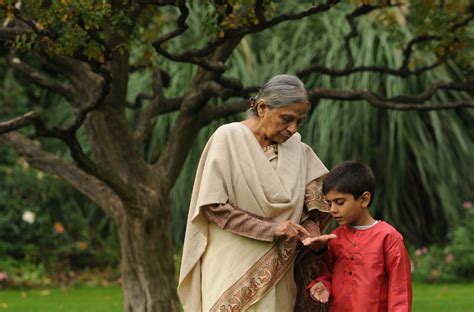
Many older adults, reflecting on their lives, are sharing invaluable life lessons they wish they had embraced earlier, emphasizing themes of self-care, financial prudence, and relationship building. These insights, drawn from years of experience, offer guidance to younger generations navigating the complexities of modern life, highlighting the importance of prioritizing mental and physical well-being, saving for the future, and nurturing meaningful connections.
Older adults are increasingly vocal about the wisdom gleaned from their life experiences, providing a roadmap for younger individuals seeking to avoid common pitfalls and cultivate a more fulfilling existence. A recent survey and compilation of anecdotes reveal recurring themes: the critical importance of mental and physical health, the benefits of early financial planning, and the enduring value of strong relationships. These lessons, often learned through trial and error, underscore the significance of proactive self-care and mindful decision-making.
One of the most frequently cited regrets among older adults is the neglect of their mental and physical well-being during their younger years. The pressures of career advancement, raising families, and societal expectations often lead to prioritizing external achievements over internal health. Many now emphasize the need to incorporate regular exercise, healthy eating habits, and stress-reduction techniques into daily routines from an early age. “If I could go back, I would have prioritized my health more,” shares Eleanor, 78, reflecting on decades spent neglecting her physical fitness due to demanding work hours. “It’s easier to maintain than to rebuild.” This sentiment is echoed by numerous others who recount the long-term consequences of neglecting their health, including chronic illnesses and reduced quality of life in later years.
The importance of mental health is also a recurring theme. The stigma surrounding mental health issues often prevents younger individuals from seeking help when needed, leading to prolonged suffering and potential long-term damage. Older adults now advocate for open conversations about mental health, encouraging younger generations to prioritize their emotional well-being and seek professional support when necessary. Regular mindfulness practices, such as meditation and yoga, are also recommended as effective tools for managing stress and promoting mental clarity. “Don’t be afraid to ask for help,” advises Robert, 82, who struggled with anxiety for years before finally seeking therapy in his 60s. “It’s a sign of strength, not weakness.”
Financial prudence is another area where older adults express a desire for earlier intervention. The allure of instant gratification and the pressure to keep up with societal trends often lead to impulsive spending habits and a lack of long-term financial planning. Many now advocate for starting to save and invest early, even if it’s just a small amount each month. The power of compounding interest over time can significantly impact financial security in later years. “I wish I had started saving for retirement in my 20s,” laments Maria, 75, who now relies heavily on social security benefits. “Even a small amount can make a big difference over the long run.”
Beyond saving, understanding basic financial concepts such as budgeting, investing, and debt management is crucial. Older adults recommend seeking financial education resources and consulting with financial advisors to develop a sound financial plan. Avoiding high-interest debt, such as credit card debt, is also emphasized as a key factor in achieving financial stability. “Learn about money early,” advises David, 80, a retired accountant. “It’s a skill that will benefit you throughout your life.” He emphasizes the importance of understanding the difference between needs and wants, and making informed financial decisions based on long-term goals rather than immediate desires.
Nurturing meaningful relationships is perhaps the most poignant lesson shared by older adults. The demands of modern life often lead to neglecting relationships with family and friends, prioritizing work and other commitments instead. However, as individuals age, they often realize the importance of these connections for emotional support, companionship, and overall well-being. “Relationships are everything,” emphasizes Susan, 85, a widow who relies heavily on her close-knit group of friends and family. “Don’t take them for granted.”
Maintaining strong relationships requires effort and dedication. Older adults advise making time for loved ones, actively listening to their concerns, and expressing appreciation for their presence in your life. Forgiving past grievances and focusing on the present are also crucial for preserving relationships. “Don’t let petty arguments ruin important relationships,” advises Michael, 79, who regrets losing touch with some of his siblings due to past disagreements. “Life is too short to hold grudges.”
Beyond family and friends, building connections within the community is also essential for fostering a sense of belonging and purpose. Volunteering, joining clubs, and participating in community events are all ways to connect with others and contribute to society. “Get involved in your community,” advises Elizabeth, 88, who volunteers at a local food bank. “It’s a great way to meet new people and make a difference.”
Another recurring theme is the importance of pursuing passions and taking risks. Many older adults regret not pursuing their dreams or taking chances when they were younger, often due to fear of failure or societal expectations. They now encourage younger generations to embrace their passions and not be afraid to step outside their comfort zones. “Don’t be afraid to fail,” advises James, 76, who spent his career in a stable but unfulfilling job before finally pursuing his passion for painting in retirement. “Failure is just a learning opportunity.”
Taking calculated risks can lead to personal growth and unexpected opportunities. Older adults advise carefully weighing the potential risks and rewards before making a decision, but not letting fear paralyze you from pursuing your goals. “Don’t let fear hold you back,” advises Patricia, 81, who traveled the world after retiring from her teaching career. “You never know what you might discover.”
Furthermore, embracing lifelong learning is crucial for staying mentally sharp and adapting to a constantly changing world. Older adults advise continuously seeking new knowledge and skills, whether through formal education, online courses, or simply reading books and articles. “Never stop learning,” advises George, 84, a retired engineer who still takes online courses in computer science. “It keeps your mind active and engaged.”
The ability to adapt to change is also essential for navigating the challenges of life. Older adults advise embracing change and being open to new experiences, rather than resisting them. “Change is inevitable,” advises Linda, 77, who has adapted to numerous technological advancements throughout her life. “Learn to embrace it.”
Finally, many older adults emphasize the importance of living in the present moment and appreciating the simple things in life. The pursuit of material possessions and external validation often leads to dissatisfaction and a lack of fulfillment. Older adults now advise focusing on gratitude, practicing mindfulness, and appreciating the beauty of the world around you. “Live in the moment,” advises Carol, 83, who enjoys spending time in her garden and appreciating the beauty of nature. “Don’t take anything for granted.”
By heeding the wisdom of older adults, younger generations can navigate the complexities of life with greater awareness, purpose, and fulfillment. These lessons, drawn from years of experience, offer a valuable roadmap for building a more meaningful and satisfying life. They highlight the importance of prioritizing mental and physical well-being, saving for the future, nurturing meaningful connections, pursuing passions, embracing lifelong learning, and living in the present moment. These insights serve as a powerful reminder that true success lies not in external achievements, but in inner peace, strong relationships, and a life well-lived.
The core message underscores a shift in perspective often gained with age – a transition from valuing external validation to prioritizing internal well-being and meaningful connections. The insights challenge younger individuals to reconsider their priorities and cultivate habits that promote long-term happiness and fulfillment. The advice offered by older adults serves as a poignant reminder that life’s true treasures lie not in material possessions or career achievements, but in the richness of human connection and the pursuit of personal growth.
The article highlights a crucial aspect of intergenerational knowledge transfer, suggesting that the experiences and reflections of older adults hold significant value for younger generations. By sharing their regrets and insights, older individuals provide a unique perspective that can help younger individuals avoid common pitfalls and make more informed choices. This exchange of wisdom fosters a deeper understanding of the human experience and promotes a more compassionate and supportive society.
The emphasis on mental health, financial planning, and relationship building reflects the evolving priorities of modern society. As younger generations grapple with increasing stress, economic uncertainty, and social isolation, the advice offered by older adults provides a much-needed sense of guidance and direction. The call for proactive self-care, responsible financial management, and meaningful connection serves as a powerful antidote to the pressures of modern life.
The article’s focus on personal growth and lifelong learning also underscores the importance of continuous development and adaptation. In a rapidly changing world, the ability to learn new skills, embrace new perspectives, and adapt to new challenges is essential for success and fulfillment. The encouragement to pursue passions, take risks, and never stop learning provides a roadmap for lifelong growth and self-discovery.
Ultimately, the wisdom shared by older adults serves as a powerful reminder of the importance of living a life of purpose and meaning. By prioritizing mental and physical well-being, saving for the future, nurturing meaningful connections, pursuing passions, embracing lifelong learning, and living in the present moment, individuals can create a life that is both fulfilling and impactful. The insights offered by older adults provide a valuable framework for navigating the complexities of life and building a legacy of wisdom and compassion. The collected advice can serve as guideposts to live by, reinforcing the value of experiences and how reflections on these experiences can translate to life lessons for others. Frequently Asked Questions (FAQs)
- What are the most common regrets shared by older adults, and what can younger people learn from them?
Older adults frequently express regrets about neglecting their mental and physical health, not starting to save and invest early enough, and not prioritizing meaningful relationships. Younger individuals can learn from these regrets by proactively incorporating self-care practices into their daily routines, developing sound financial habits early on, and nurturing strong connections with family, friends, and their community. The key takeaway is to balance career aspirations with personal well-being and long-term financial security. “If I could go back, I would have prioritized my health more,” shares Eleanor, 78, highlighting the importance of early health management.
- Why is financial planning so crucial from a young age, according to the experiences of older adults?
Financial planning from a young age is crucial because it allows individuals to take advantage of compounding interest, build a solid financial foundation, and avoid the pitfalls of high-interest debt. Older adults emphasize that even small amounts saved regularly can make a significant difference over time, providing financial security and peace of mind in later years. Understanding basic financial concepts and seeking professional advice are also essential components of sound financial planning. Maria, 75, wishes she’d started saving in her 20s, lamenting that even small amounts have a large impact over time.
- How important are relationships in the overall well-being of older adults, and what advice do they offer for nurturing these relationships?
Relationships are paramount to the overall well-being of older adults, providing emotional support, companionship, and a sense of belonging. They advise making time for loved ones, actively listening to their concerns, expressing appreciation, forgiving past grievances, and focusing on the present. Building connections within the community through volunteering and participation in local events is also emphasized as a way to foster a sense of purpose and connection. Susan, 85, stresses that “Relationships are everything,” advising that they shouldn’t be taken for granted.
- What do older adults say about pursuing passions and taking risks, and how can younger people apply this advice to their own lives?
Older adults often regret not pursuing their passions or taking risks when they were younger, often due to fear of failure or societal expectations. They encourage younger generations to embrace their passions, step outside their comfort zones, and not be afraid to fail, viewing failure as a learning opportunity. Taking calculated risks can lead to personal growth and unexpected opportunities. James, 76, encourages, “Don’t be afraid to fail,” emphasizing that it is simply a chance to learn.
- How can younger generations embrace lifelong learning, and why is it important, according to older adults?
Younger generations can embrace lifelong learning by continuously seeking new knowledge and skills through formal education, online courses, reading, and other resources. Lifelong learning is important because it keeps the mind active and engaged, allows individuals to adapt to a constantly changing world, and promotes personal growth and fulfillment. Older adults advise never stopping learning and being open to new experiences. George, 84, says, “Never stop learning,” emphasizing that this keeps the mind active.
- What specific habits do older adults recommend incorporating early in life to safeguard mental well-being?
Older adults suggest several habits for safeguarding mental well-being early in life. These include practicing mindfulness through meditation or yoga, seeking professional help when needed without shame, engaging in open conversations about mental health, prioritizing sleep and rest, and setting healthy boundaries to manage stress. Robert, 82, advises not being afraid to ask for help, as it is a sign of strength.
- Beyond saving, what other financial literacy areas do older adults suggest focusing on to achieve long-term financial stability?
Beyond saving, older adults recommend focusing on budgeting, investing, debt management (especially avoiding high-interest debt), and understanding the difference between needs and wants. Seeking financial education resources and consulting with financial advisors are also advised to develop a sound financial plan. David, 80, emphasizes learning about money early as a skill that will benefit you throughout life.
- How do older adults view the importance of community involvement and contributing to society?
Older adults view community involvement as crucial for fostering a sense of belonging, purpose, and connection. They recommend volunteering, joining clubs, participating in community events, and finding ways to contribute to society, emphasizing that these activities can enrich your life and the lives of others. Elizabeth, 88, says getting involved in the community is a great way to meet people and make a difference.
- What advice do older adults give regarding embracing change and adapting to new situations?
Older adults advise embracing change and being open to new experiences rather than resisting them. They emphasize that change is inevitable and learning to adapt is crucial for navigating the challenges of life. Viewing change as an opportunity for growth and new experiences can make it less daunting. Linda, 77, advises learning to embrace change, as it is inevitable.
- What strategies do older adults recommend for living in the present moment and appreciating the simple things in life?
Older adults recommend focusing on gratitude, practicing mindfulness, spending time in nature, cultivating meaningful connections, and appreciating the beauty of the world around you. They advise avoiding the pursuit of material possessions and external validation and instead focusing on inner peace, strong relationships, and living a life of purpose. Carol, 83, advises living in the moment and appreciating the beauty of nature.
- How can young people balance the pursuit of career success with the wisdom of prioritizing personal well-being and relationships?
Young people can balance career success with personal well-being by setting clear boundaries between work and personal life, prioritizing self-care activities like exercise and mindfulness, making time for meaningful relationships, and recognizing that career success should not come at the expense of health and happiness. Regularly reassessing priorities and adjusting as needed is also crucial.
- What specific actions can young people take to cultivate stronger relationships with older generations?
Young people can cultivate stronger relationships with older generations by actively listening to their stories and experiences, seeking their advice and guidance, spending quality time with them, showing respect and appreciation, and engaging in activities that they enjoy together. Visiting, calling, and writing letters are also simple but meaningful ways to connect.
- How do older adults reconcile the importance of planning for the future with the need to live in the present moment?
Older adults reconcile planning for the future with living in the present moment by recognizing that planning provides security and peace of mind, allowing them to enjoy the present without constant worry. They advise finding a balance between being mindful of the present and making responsible choices for the future, focusing on long-term goals while appreciating the everyday joys.
- What are some practical ways young people can incorporate more mindfulness into their daily routines?
Young people can incorporate mindfulness into their daily routines by starting with short meditation sessions, practicing mindful breathing, paying attention to their senses during everyday activities, journaling about their thoughts and feelings, and engaging in activities that bring them joy and relaxation. Setting aside dedicated time for mindfulness and being patient with the process are also important.
- How can young people overcome the fear of failure and embrace a growth mindset when pursuing their passions?
Young people can overcome the fear of failure by reframing failure as a learning opportunity, focusing on effort and progress rather than outcomes, celebrating small successes, seeking support from mentors and peers, and reminding themselves that everyone experiences setbacks. Embracing a growth mindset, which emphasizes the belief that abilities can be developed through dedication and hard work, is also crucial.
- What is the significance of intergenerational knowledge transfer, and how does it benefit both older and younger generations?
Intergenerational knowledge transfer is significant because it allows older generations to share their experiences, wisdom, and life lessons with younger generations, while also providing older adults with a sense of purpose and fulfillment. It benefits both groups by fostering mutual understanding, promoting personal growth, and creating a more compassionate and supportive society.
- In what ways can educational institutions and community organizations support the sharing of wisdom from older adults to younger people?
Educational institutions and community organizations can support the sharing of wisdom from older adults to younger people by creating mentorship programs, organizing intergenerational workshops and discussions, inviting older adults to speak to students and community members, and providing platforms for sharing stories and experiences.
- How does the wisdom shared by older adults relate to current societal challenges such as increasing stress, economic uncertainty, and social isolation?
The wisdom shared by older adults offers valuable guidance for addressing current societal challenges by emphasizing the importance of self-care, financial responsibility, meaningful relationships, and community involvement. These principles provide a framework for navigating stress, building resilience, and fostering a sense of belonging in a rapidly changing world.
- What are some common misconceptions that younger people have about aging, and how can the wisdom of older adults help to dispel these myths?
Common misconceptions that younger people have about aging include the belief that aging is synonymous with decline, that older adults are out of touch with modern society, and that they are no longer capable of contributing to society. The wisdom of older adults helps to dispel these myths by showcasing their resilience, adaptability, and ongoing contributions to their communities.
- What lasting impact can young people have by heeding the advice and insights of older generations?
Young people who heed the advice and insights of older generations can have a lasting impact by living more fulfilling and meaningful lives, building stronger relationships, contributing to their communities, and creating a legacy of wisdom and compassion for future generations. They can also promote intergenerational understanding and create a more supportive and inclusive society for people of all ages. The impact revolves around living life more intentionally and with a focus on long-term well-being, both personal and societal.









